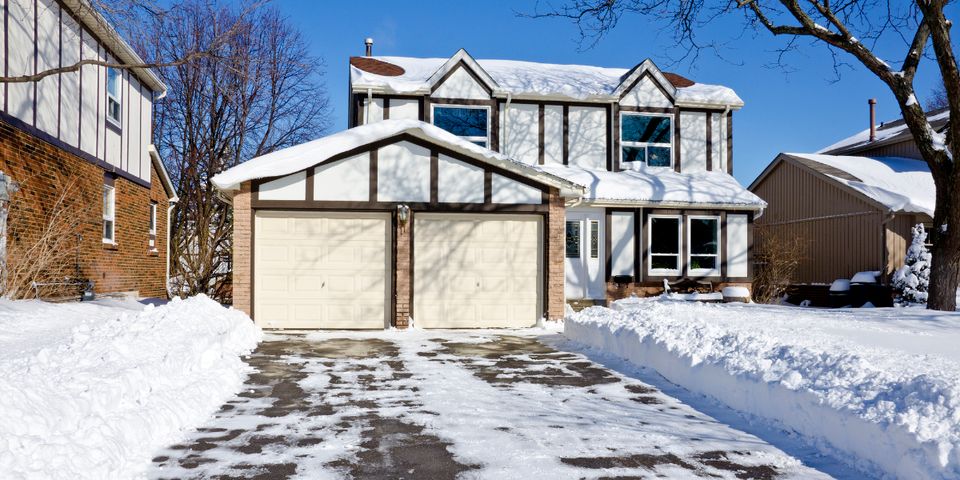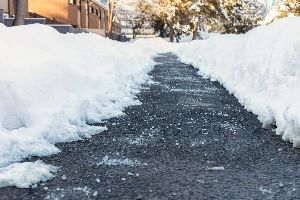3 Ways Snow Can Affect an Asphalt Driveway

Snowy conditions can affect nearly all aspects of your property, and your asphalt driveway is no exception. For homeowners in the Northeast, bracing for considerable snowfall is a routine aspect of each winter season. Here’s what you should know to prevent damage to the pavement.
How Does Snow Affect Asphalt?
1. Damage From Freeze-Thaw Cycles
The freeze/thaw cycle in the Northeast is one of the primary culprits behind driveway damage. When the snow melts, it seeps into small cracks in the asphalt. As the temperature drops again, such as after nightfall or when a cold front comes in, moisture expands, causing small cracks to become larger. This freeze/thaw cycle repeats continuously throughout the winter, and you may notice pronounced cracks and potholes in your driveway as a result.
2. Issues From Ice Melt

Many homeowners use ice melt to stop ice from accumulating and causing slip hazards in their driveways. Unfortunately, rock salt and other deicing products can accelerate the freeze-thaw cycle, potentially leading to increased damage.
Materials that can perform at lower temperatures could help minimize the risks of the freeze-thaw cycle. For example, calcium chloride can work in temperatures as low as -25 degrees, keeping the ice melted to prevent the continuous expansion and contraction that would otherwise occur.
3. Cracks From Excess Weight
Plowed snow often winds up in a pile on one side of a driveway. Ideally, you’ll want to clear the snow from the asphalt entirely and make sure it’s all piled on your yard. Otherwise, your asphalt may crack under the significant weight of the snow pile. While this is most likely to occur in commercial parking lots, it could pose a risk in large driveways after a snowy season.
If you’re planning an asphalt driveway installation, turn to Beausoleil & Sons Construction Inc. These paving contractors have been serving all of Rhode Island, Northern Massachusetts, and Southern Connecticut for more than 50 years. Find out more about their services online or discuss your project by calling (401) 632-0203.
About the Business
Have a question? Ask the experts!
Send your question

